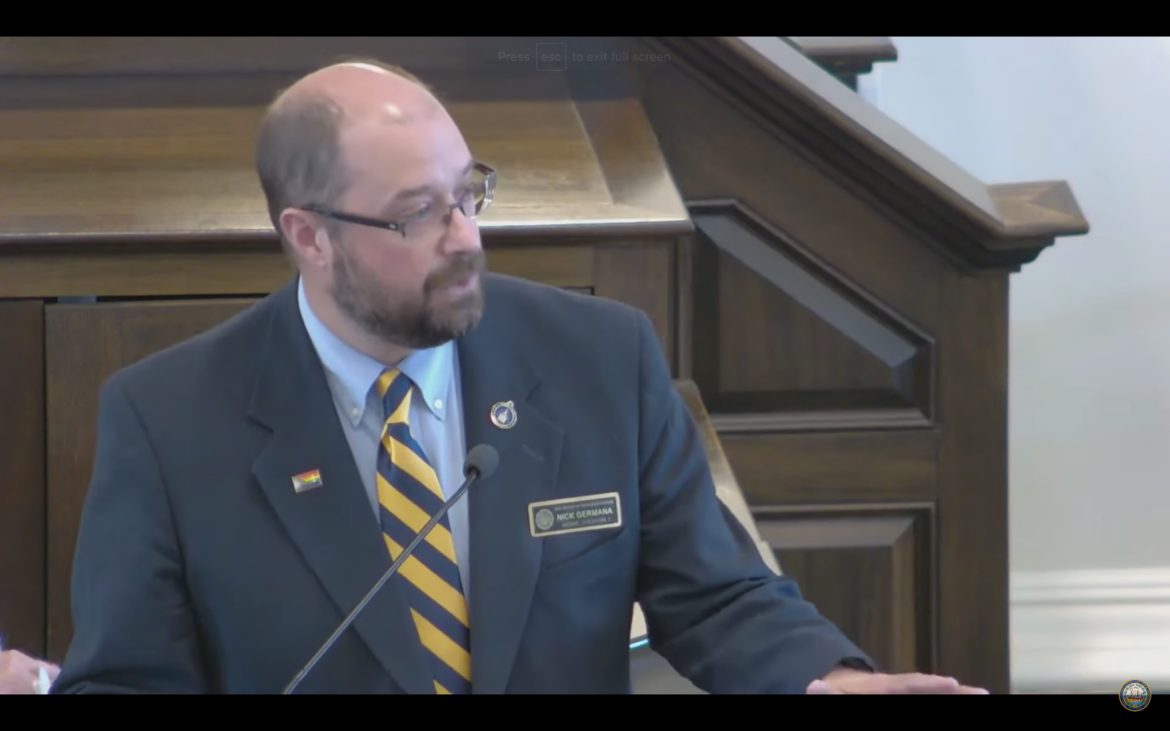By GARRY RAYNO, InDepthNH.org
CONCORD — The House killed a bill that some believe favored the solid waste industry over those impacted by those facilities.
Meeting on the final day of regular session before veto day in September, the House voted down a committee of conference report on Senate Bill 61 on a 238-134 vote before the Senate could act on it.
A number of representatives spoke in opposition to the bill that would have imposed a two-year moratorium on new landfills while a consultant is hired to rewrite the state’s laws and rules governing landfill siting, particularly set-back requirements from water bodies.
They cited recent revelations that the former lobbyist for Vermont-based Casella Waste Systems, which proposed a new landfill in Dalton, worked with Department of Environmental Services officials in crafting the language of the bill.
“This bill needs to be thrown in the trash,” said Rep. Kelley Potenza, R-Strafford. “It not only kicks the can down the road, it kicks it in the wrong direction.”
She said there are ethical issues with drafting legislation that is influenced and controlled by industry representatives that put the health and safety of New Hampshire citizens at risk.
She also questioned why the Department of Environmental Services needs to hire a consultant to help rewrite the rules and the statutes when it has already begun the process of rewriting the setback rules which expire next year.
Potenza noted the state does not need a new landfill going out 20 years and instead should be exploring how to reduce the out-of-state trash being dumped in state landfills.
“Come January we can produce a bill that offers real protection for our surface water,” Potenza said. “Let’s make doing the right thing possible again.”
Instead of the uniform 200-foot setback currently in regulations, the set-back should be determined by hydro-geological conditions to protect both surface and groundwater, she said.
But Rep. Judy Aron, R-Acworth, argued the bill provides a two-year abeyance while the new rules and statutes on new landfills are drafted, with a 90-day extension if needed.
The new rules will be in effect when the pause ends, she noted, replacing the 30-year-old rules.
The department does not have the manpower to do the work, Aron noted, and $200,000 will be available for consultants to assist the agency.
She defended the involvement of stakeholders including the industry in working on the bill saying all the stakeholders need to be involved including citizens from the North Country.
“Nothing is done in a vacuum,” she said, noting the current bill has the support of the DES commissioner, which some other landfill bills did not.
“If we do not accept this bill, any landfill application could be granted next week, or next month or next year (under the old rules with a 200-foot setback),” Aron said. “We must not let this opportunity slip away and must pass this now.”
But others questioned why state taxpayers should have to pay for consultants when the DES has already begun the process and there is sufficient information available to draft new rules and statutes for siting landfills.
“This is not Casella’s body, we are New Hampshire’s body,” said Rep. Jonah Wheeler, D-Peterborough. “We can non-concur and say we protected our water.”
Others argued the state’s natural resources are why people want to live here or visit here, and anything that puts those assets at risk needs close scrutiny by lawmakers.
The House Environmental and Agriculture Committee retained several bills dealing with landfills that will be acted on at the beginning of the 2024 session.
The proposed Dalton landfill has met stiff resistance mostly due to its close proximity to Forest Lake.
Casella also owns a landfill in Bethlehem and sought to expand it, but the town turned the request down.
One of the largest landfills in the Northeast is in Rochester. The Turnkey Landfill is owned by Waste Management, Inc., a national solid waste disposal company. Trash from Portland, Maine and Boston, Mass. Is going into the Rochester facility as other states restrict new landfills.
The state has reactivated a solid waste study group that has been working to rewrite the state solid waste plans.
Garry Rayno may be reached at garry.rayno@yahoo.com.





